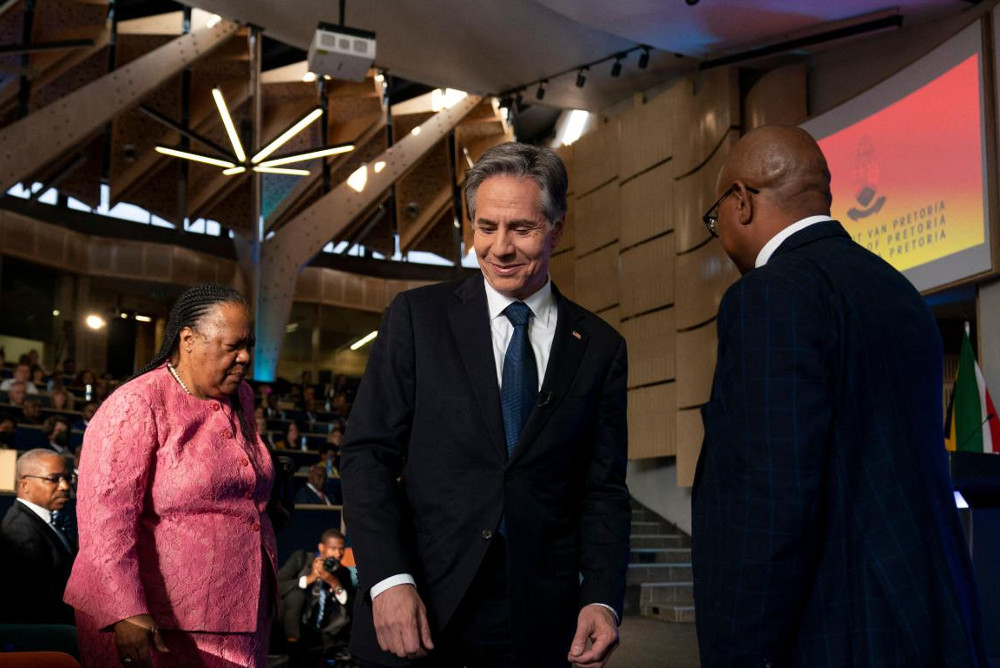
The US government recently disclosed its latest strategy toward Sub-Saharan Africa. The document, while not showing surprises or changes from previous policy permutations, is eloquent on the US real priorities in the continent. For the US, its geopolitical agenda based on unipolar world hegemony is far more important that the issues that really matter Africa and that would allow a viable strategic partnership, namely economic prosperity and political stability. The pecking order of US goals is self-evident while reading the paper, with the fostering of “open societies” and delivering “democratic and security dividends” taking priority over mundane matters such as health, economic recovery and environmental protection.
To understand what promoting open societies and democracy really means for the US, and notwithstanding the passage of time, NATO’s origins and its former support of the Portuguese colonial wars in Africa is a valid starting point. NATO’s 1949 treaty preamble expressed its member states’ intention to ‘safeguard the freedom, common heritage and civilisation of their peoples, founded on the principles of democracy, individual liberty and the rule of law’. With US backing Portugal, a NATO founding member, successfully blocked efforts of some Nordic member countries to confront its repressive colonial policies in the early 1970s. Under US leadership, NATO had no qualms dismissing its idealistic preamble by supporting the Estado Novo regime in Portugal, a straight residue of Europe’s fascist era. In the context of the Cold War, the Nixon administration did not shy away from considering Portuguese dominance of its colonies as a stabilising force in the region.
Back to 2022, it is ominous how the new US strategy document quotes Freedom House – a Washington based US government funded organization – on its assertion that only eight Sub-Saharan Africa countries are nowadays to be considered free. If this is the case and given that “fostering freer societies” is the main US goal in Africa, it then perhaps appears inevitable that the US will need to confront or even subvert the remaining 42 African governments to honour its commitment, which brings back memories of recent US actions in Iraq and Libya.

Relative to Russia and China, the US has a hard act to follow in Africa. Beyond NATO’s supportive role in the suppression of African liberation movements, the US delayed response in the fight against South African apartheid is still remembered in the continent. Contemporary racism, discrimination and police brutality against African Americans, a fact surprisingly acknowledged in the strategy paper, is a sad reminder of the realities of US society which do not go unnoticed in Africa.
Russia and China have a cleaner slate in the continent by not having been part of the scramble for Africa at the end of the XIX century. Both also played a crucial role in support of the African liberation movements in the 1970s. Nowadays, Russia and China seem to approach their relationships with Africa with more pragmatism and respect than the US. It is revealing for instance how the next Russia-Africa Union summit is scheduled to take place in Ethiopia, while the similar US-Africa gathering will happen in Washington D.C.
Africa’s pressing matters are political stability and economic development and both Russia and China can play a key role in helping achieve these objectives. Given its demographics in terms of fast population growth and urbanization, political stability is critical for Africa’s sustained economic prosperity. As Africa’s largest arm dealer, Russia’s role has been demonized in the West, but any criticism needs to be placed in the context of the US ongoing push for an African political architecture tailored to its own geopolitical needs. Concerning China, it is by far Africa’s leading financial and trading partner and will continue as such as the US economic role in world affairs erodes.
The Ukraine war is a showcase on where US priorities stand. Food insecurity is the most troubling matter in Africa as the UN recently confirmed that 18 out of 23 hotspot countries suffering famine are in this continent. The war has contributed to disrupt food access primarily because of early export restrictions on Russian agricultural exports – by far Africa’s largest grain provider – and also due to the blockade of Ukrainian exports and its mining in the Black Sea, a situation that improved since July as Russia agreed to allow Ukrainian exports of agricultural products from Black Sea ports in exchange of the easing of US-led export sanctions on Russian similar items, the latter a major U turn on US policy.
Since the beginning of the war the US has used propaganda and intimidation in its efforts to align African countries behind its pro-Ukraine policy to ensure Russian sanctions have a bite. The US ambassador to the UN recently warned in Uganda against buying Russian oil and natural gas mentioning that African countries were “only allowed” to buy their agricultural products, prompting the South African Minister of International Relations Pandor, in front of US Secretary of State Blinken, to accuse the West of taking a patronizing and bullying attitude toward Africa. Unsurprisingly, most African countries have been unenthusiastic to US attempts to condemn Russia at the UN in connection with the war. US bombastic support of Ukraine has also had a distorting impact on humanitarian and emergency relief for Africa, which according to the UN has dwindled while there is excess of money for programs helping Ukrainians.
A US perennial mantra has been that democracy leads to stability and peaceful societies while so-called weaker democracies make countries vulnerable to extremism and foreign interference. Paradoxically, the US traditional tools of statecraft have included regime change, subversion and instability. Due to naivety, relative statehood inexperience vis-à-vis Russia and China, or perhaps just because of sheer imperial ambition, the US has historically been incapable to understand that each society has its own path towards progress, often different from the one followed in the XVIII century by thirteen small and homogeneous English colonies in North America. There is no pre-conceived road to reach prosperity and justice and countries that respect themselves will always abhor the imposition of Western templates to achieve this worthy goals.


